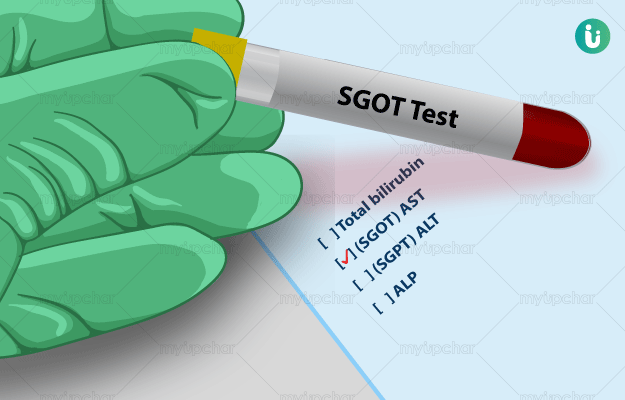What is SGOT (AST) test?
SGOT stands for serum glutamic oxaloacetic transaminase, a protein produced by liver. Another name for SGOT is aspartate aminotransferase (AST). SGOT (AST) is one of the liver function tests, used to check the working of liver. Liver is an important gland that is involved in various metabolic activities to keep the body healthy. It is a major detoxification centre for body and also aids in digestion. Other than liver, AST is also produced by many body organs, like:
- Pancreas
- Heart
- Kidneys
- Muscles
- Red blood cells
When your body is healthy, AST functions inside organs and is generally absent from the blood or is present in extremely low amounts. Only when there has been damage to the above-mentioned organs, AST spills into blood, and its levels rise in bloodstream. To confirm that liver damage is the cause of increased AST levels in blood, this test is usually accompanied by alanine aminotransferase (ALT) test.






























